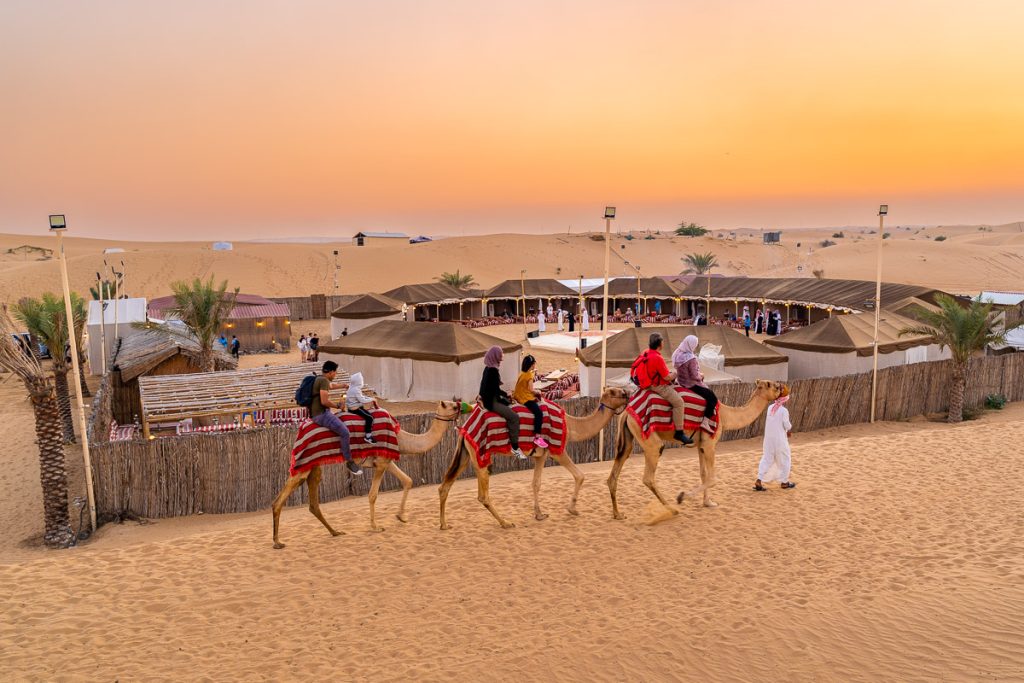Ever found yourself gripping the seat handles during a dune bash, wondering just how regulated these desert adventures really are? Dubai’s desert safaris combine exhilarating thrills with strict safety protocols, creating an adventure that’s far safer than its heart-pounding moments might suggest. Let’s examine the multilayered safety net that makes this iconic experience both exciting and secure.
The Rigorous Licensing System Behind Desert Safari Operators
Dubai’s tourism authorities maintain stringent requirements for desert safari companies. To operate legally, all providers must obtain special 4×4 desert driving certifications from the Road and Transport Authority (RTA) and maintain accreditation with the Department of Tourism and Commerce Marketing (DTCM). These licenses require:
- Annual vehicle inspections focusing on roll cages and suspension systems
- Mandatory GPS tracking in all safari vehicles
- First aid certified staff on every tour
- Environmental compliance with the Dubai Desert Conservation Reserve
The www.few.ae editor team verified that licensed operators display their DTCM certificate prominently – always ask to see it before booking.
Vehicle Safety: More Than Just Seatbelts
Those rugged Land Cruisers undergo more preparation than meets the eye. Professional safari vehicles feature:
- Reinforced roll cages tested for dune impact scenarios
- Specially tuned suspension for dune articulation
- Tire pressure monitoring systems
- Emergency kill switches accessible to passengers
- Fire extinguishers and emergency tool kits
Few tourists realize drivers lower tire pressure to 12-15 PSI before dune bashing – a crucial technique preventing rollovers by increasing the tire’s sand footprint.
Driver Training: Where Skill Meets Protocol
Dubai’s top safari drivers complete intensive programs including:
- Advanced 4×4 Desert Driving Courses: Minimum 80 hours training
- Dune Navigation Certification: Reading terrain like a topographic map
- Emergency Response Training: Sand recovery and medical first response
- Cultural Sensitivity Programs: Ensuring guest comfort
Veteran drivers often carry 5+ years of experience before piloting tourist vehicles. Many can literally feel when a dune’s slip face becomes unstable – a skill developed through thousands of desert hours.
Medical Considerations: Who Should Think Twice
While generally safe, desert safaris pose risks for certain conditions:
- Pregnancy: Most operators prohibit expecting mothers from dune bashing
- Back/Neck Issues: The jostling may aggravate spinal conditions
- Heart Conditions: Adrenaline and heat combine as stressors
- Recent Surgery: Wait until fully healed before attempting
Reputable companies require health disclosures during booking. Those with concerns should opt for gentler “soft dune” experiences instead.

Environmental Factors: When Nature Intervenes
Dubai’s desert presents unique safety considerations:
- Summer Heat: June-August temperatures often exceed 45°C (113°F)
- Sandstorms: Reduced visibility may cancel tours
- Flash Floods: Rare but dangerous in wadi areas
- Wildlife: Most species avoid humans, but scorpions emerge at dusk
The National Center of Meteorology provides real-time alerts that ethical operators strictly follow. Monsoon season (July-August) sometimes brings unexpected rainfall that stabilizes dunes, altering driving conditions.
The Camp Safety Net: More Than Just a Pretty Tent
Evening safari camps maintain their own protocols:
- Fire extinguishers every 20 meters
- Designated emergency exits
- Food safety certifications for catered meals
- Illuminated pathways to prevent falls
- Shaded cooling stations during summer
Look for camps displaying their Dubai Municipality health and safety certificates near food service areas.
Parental Guidance: Safeguarding Younger Adventurers
While children can enjoy safaris, consider:
- Age restrictions (typically 5+ for dune bashing)
- Booster seat availability
- Kid-friendly meal options
- Shaded play areas at camps
Many families prefer private tours where drivers can customize intensity levels for children’s comfort.
When Things Go Wrong: The Emergency Response System
Dubai’s desert safety infrastructure includes:
- Dedicated emergency response teams on call
- Helicopter evacuation capabilities
- Strategic placement of emergency beacons
- Interconnected guide communication networks
The Dubai Corporation for Ambulance Services maintains special desert response units trained for off-road rescues.
Your Personal Safety Checklist
Maximize your safety by:
- Verifying operator licenses before booking
- Hydrating well before and during the experience
- Securing loose items during dune bashing
- Following all guide instructions precisely
- Packing any necessary medications
For current safety alerts, check the Dubai Tourism Safety Portal before departure. Remember, the desert demands respect, but with proper precautions, Dubai’s safaris offer thrilling yet secure adventures that linger in memory long after the sand shakes out of your shoes.
